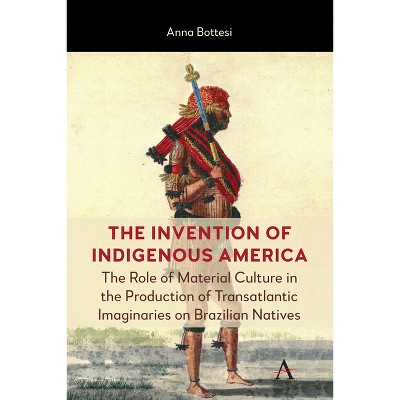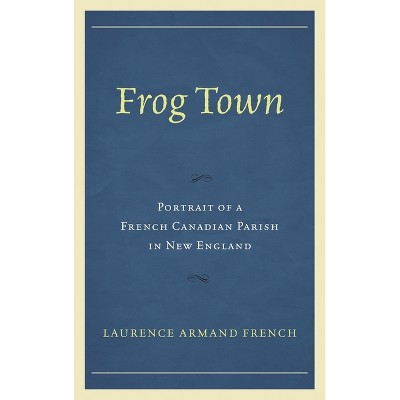Transformation of Indigenous North America - by Laurence Armand French (Hardcover)

About this item
Highlights
- This book is unique in that it synthesizes the cultural heritage of all the Indigenous peoples of North America (Mexico, USA, Canada) and the nature of their interactions over the centuries as well as their relations with Blacks and Anglos.
- About the Author: Laurence Armand French, Professor Emeritus-Psychology (Western New Mexico University); Affiliate Professor (University of New Hampshire-Durham.
- 250 Pages
- History, Asia
Description
About the Book
This is a book about the adaptation of Indigenous groups in North America (Mexico, USA, Canada) and their interrelatedness to each other and outside influences over time.
Book Synopsis
This book is unique in that it synthesizes the cultural heritage of all the Indigenous peoples of North America (Mexico, USA, Canada) and the nature of their interactions over the centuries as well as their relations with Blacks and Anglos. Most literature on this topic segments the Mexican/Spanish from the USA/Canadian English/French works while not fully integrating the pre-Columbian (Aboriginal) or the influences that transpired following colonization and nationhood. We focus on the tribal transformations, cultural adaptations, and inter/intra-group interactions over time leading to the contemporary pan-Indianism of today that provides a universal ethnic identity while protecting unique traditional attributes that have survived to the present. At the same time, we address the foundations of White supremacy and entitlement and the role it plays in contemporary race relations and the long history of White exploitation.
Prior to 1492 and the onslaught of White colonization, pre-Columbian America was inhabited by millions of people estimated in the tens of millions, speaking more than 300 languages with thousands of dialects clustered into major linguistic groups, with complex cultures and their own unique rites, customs, and lifestyles, which, in many instances, were more equalitarian than that of the Europeans at the time. Indeed, the pre-Columbian natives of the Americas represented a diversity of cultures and societies from hunting and gathering tribes to horticultural groups and even sophisticated city-states and pueblos such as those developed by the Aztec, Inca, and Mayan empires of Mexico and Central and South America. Aboriginal trade routes extended from South and Central America to North America with many of the current roads, highways, and waterways reflecting these inter-tribal trade routes long established prior to European contact. Incredibly, the Indigenous peoples of the Americas established these trade routes extending from South and Central America to North America without the advantage of the horse or wheeled contrivances, innovations that came with European contact.
About the Author
Laurence Armand French, Professor Emeritus-Psychology (Western New Mexico University); Affiliate Professor (University of New Hampshire-Durham.











